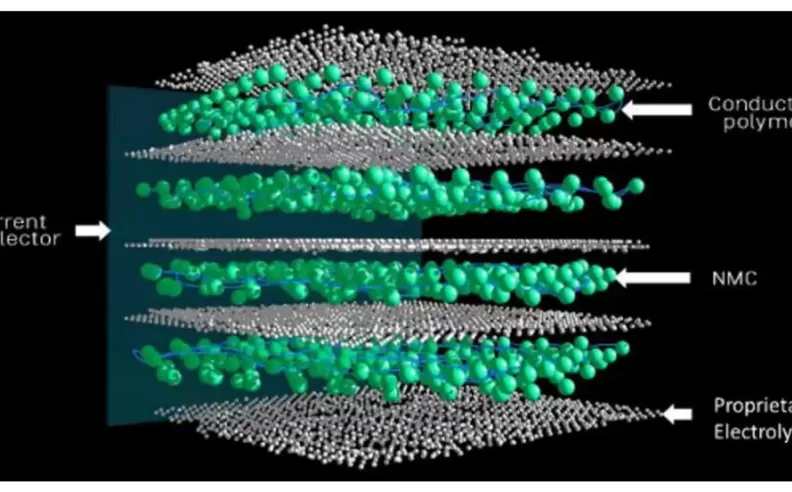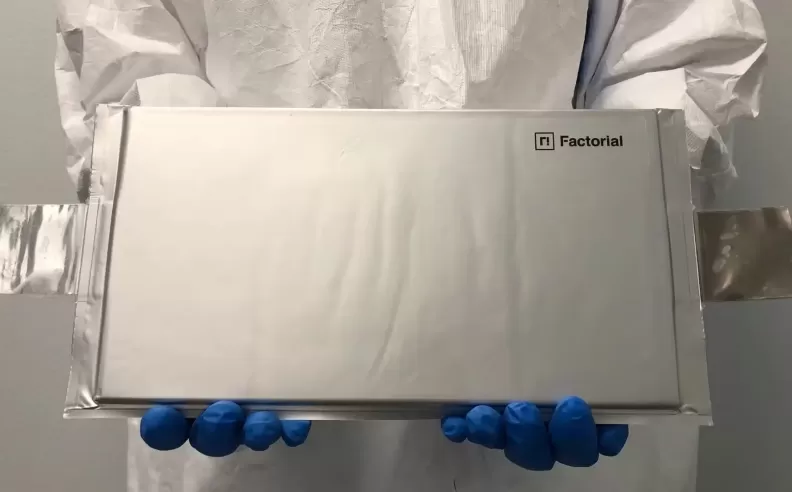
The electric vehicle (EV) market has experienced significant advancements in recent years, largely driven by improvements in battery technology. Yet, despite the remarkable progress, we’re still in the early days of the EV revolution. Cars like the Tesla Model S and X still use lithium-ion battery cells originally designed for consumer electronics rather than automotive applications. However, groundbreaking battery technologies are now emerging, poised to open a new chapter in EV development that could redefine the entire industry.
The race to develop the next generation of EV batteries involves two primary approaches: refining existing lithium-ion technology to new levels or creating an entirely new type of battery cell. Companies such as Factorial, QuantumScape, and Group14 are at the forefront of these innovations, each with a unique approach and partnerships with major automakers like Mercedes-Benz, Stellantis, and Volkswagen. Their work in solid-state batteries (SSBs) and advanced lithium chemistries is expected to significantly impact the vehicles we drive in the near future.

Solid-state batteries (SSBs) have garnered substantial attention due to their potential to solve the limitations of traditional lithium-ion batteries, particularly regarding energy density, weight, and safety. Unlike conventional batteries, which use a liquid electrolyte, SSBs incorporate a solid electrolyte that offers several advantages, most notably the ability to utilize lithium metal as an anode material. This shift could dramatically improve energy density, reduce battery weight, and enhance safety.
One of the key innovations SSBs bring to the table is their ability to prevent dendrite formation—a persistent issue with lithium-metal anodes in liquid electrolyte cells. Dendrites are needle-like structures that form on the anode during charging cycles, potentially causing a short circuit and leading to thermal runaway, fire, or even explosions. Liquid electrolytes and thin separators, standard in current lithium-ion cells, have historically failed to prevent dendrite formation. In contrast, solid electrolytes in SSBs offer greater resistance to dendrites, allowing the use of lithium-metal anodes with much higher stability.

Two companies making significant strides in SSB development are Factorial and QuantumScape. Both are focused on refining solid electrolyte technology to enable safer, lighter, and higher-capacity EV batteries.
Factorial, a Boston-based company founded by chemist Siyu Huang, has achieved impressive milestones in SSB performance. Huang recalls an early breakthrough when their SSBs reached 25 charge cycles—a modest figure compared to today’s technology but a substantial achievement at the time. Now, Factorial's batteries deliver over 600 cycles and meet automotive standards for durability and performance. Thousands of these cells have already been shipped to automakers like Stellantis and Mercedes-Benz for testing, and they show promising results: Factorial’s SSBs boast a discharge rate of 4C to 10C, a charging range of 20-80% in under 15 minutes, and they operate within a broader voltage range than conventional lithium-ion cells. Crucially, Factorial’s cells are 40% lighter and 33% smaller than comparable lithium-ion batteries, making them an attractive option for automakers focused on performance and range.
QuantumScape, another major player in the SSB space, also has made headlines for its advances. Backed by Volkswagen, QuantumScape is pursuing a unique solid electrolyte material with the potential to significantly enhance battery longevity and fast-charging capabilities, bringing the dream of a high-capacity, long-lasting, and lightweight EV battery closer to reality.
While solid-state batteries are capturing much of the spotlight, other innovative approaches are also advancing battery technology. Group14, for instance, is focusing on silicon-anode batteries. Silicon can store significantly more lithium ions than graphite, offering the potential for higher energy density. However, silicon’s tendency to expand during charging cycles has posed challenges for battery longevity. Companies like Group14 are working on overcoming these issues by developing silicon-based anodes that can withstand repeated charging cycles without performance degradation.
As these new technologies mature, they promise to revolutionize the EV industry. SSBs, silicon-anode cells, and other advanced batteries could double or even triple energy density compared to today’s batteries, while also reducing weight and enhancing safety. This breakthrough will translate to longer driving ranges, faster charging times, and increased safety for EVs, which could accelerate consumer adoption and reshape the transportation industry as we know it.
Factorial, QuantumScape, and Group14 are not alone. Dozens of companies and research institutions worldwide are racing to create the next generation of batteries, each with a slightly different approach. Their advancements will not only benefit EVs but could also impact energy storage for renewable energy systems, consumer electronics, and other sectors.
Despite their promise, these new battery technologies face challenges. Manufacturing solid-state batteries at scale remains expensive, and further testing is required to ensure reliability across thousands of charging cycles. While companies like Factorial have made considerable progress, scaling up production and meeting rigorous automotive standards will take time. Some experts believe that widespread adoption of SSBs could still be several years away, even as partnerships with major automakers help drive development.
The ongoing battery revolution is poised to bring about transformative changes in the EV landscape. With advances from Factorial, QuantumScape, Group14, and others, the future of EVs looks brighter than ever. These new batteries promise not only to improve vehicle performance and range but also to enhance safety and sustainability, key factors in fostering broader EV adoption. Although challenges remain, the progress achieved so far signals that the next generation of electric vehicles is just around the corner. The era of traditional lithium-ion cells in EVs may soon give way to an exciting new age of high-performance, long-lasting batteries that redefine what’s possible in electric mobility.

Wael is an automotive content writer specializes in creating written content for Motor 283. Producing a wide range of content, including blog posts, articles, product descriptions, reviews, and technical guides related to cars, trucks, motorcycles, and other vehicles, with an unprecedented passion for cars, and motorcycles.
